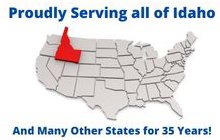Jumbo loans are also called nonconforming loans. They are for homebuyers that need additional money to buy a property that exceeds loan-services limits set by Fannie Mae and Freddie Mac, which are US government-sponsored organizations. Currently, the borrowing cap for a single-family home in the US (except Hawaii and Alaska) is $726,200, so if you need to borrow more than that, you may be looking at a jumbo loan. Jumbo loans can often be used for primary and secondary residences, vacation home, and investment properties. There are a variety of terms (such as adjustable and fixed rates), and they typically have higher interest rates, stricter rules with underwriting, require lower debt-to-income ratios, and require a larger downpayment than standard mortgages.
Pros of Jumbo Loans
One benefit of a jumbo loan is that you can receive more funding for the purchase of your dream home. If you have your heart set on that perfect property, a jumbo loan will help secure that while also not requiring that you take out multiple loans. Another benefit is that many jumbo loans only require around 5% to 10% down payments, whereas many conventional mortgages may require up to 20%.
You may be surprised to know that even with a larger-value jumbo loan, the interest rates often are slightly lower than conventional loans. This is because the demand from investors drives down the yields on jumbo loans, lenders can keep the loan on their books, and they’re not reliant on secondar market pricing. Additionally, not being tied to a government loan, it can offer more flexibility to the borrower, allowing them to choose what fits their needs best.
Cons of Jumbo Loans
Naturally, there are downsides to a jumbo loan. One issue is in regard to property vetting. You will need to vet the property to make sure it qualifies for a jumbo loan, which can be difficult depending on a variety of factors. Buyers also need to have a high credit score (typically above 680) into to obtain a jumbo loan. This can sometimes be offset by bringing in a larger downpayment, which may take some time for buyers to achieve.
Another issue many borrowers have when looking at jumbo loans is that you need to come in with evidence of a high income. Proof of a consistent annual income as well as personal finances is needed to ensure payments. Finally, another possible downside is that a cash reserve may be required, such as an addition 12 months of reserve as insurance in case of a potential problem.
Is it Right for Me?
In the end, jumbo loans are often trickier to qualify for. Whether a jumbo loan is right for you boils down to two essential questions: One, is the property I want more expensive than the conforming loan limits, and if so, am I comfortable with getting a jumbo loan. Two, can I qualify for the jumbo loan to get that property. Because of the risks and considerations, it’s important to discuss your options with a professional to help you decide. For help deciding on the best loan for your situation, contact InterWest Mortgage.





